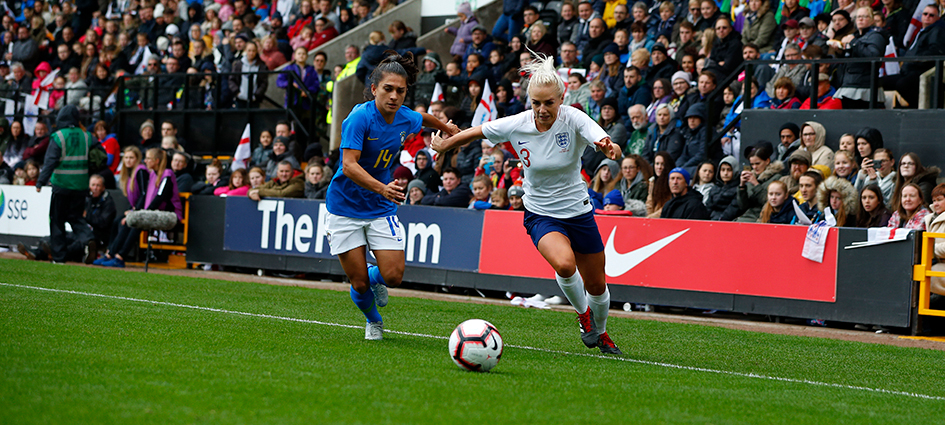
Why you need true grit to succeed as a footballer
- The Boot Room
- 02 December 2018
Why do some players get to the top, whilst others fall by the wayside? Former FA National player development coach, John Allpress, investigates.
There is a vast difference in being very good at something and being great.
Those people who become truly great have a passion and a will to succeed that often borders on obsession. They love what they do. They know what they want. They have true grit.
Many young people like the thought of becoming the next Sir Chris Hoy, Sir Steve Redgrave, Dame Kelly Holmes or others from the long list of those world class British athletes who have achieved medals at World and Olympic championships but have no idea of what it takes to become that person or that great. And then once you have become that great – how to stay there and fend off the competition. Ask Roger Federer.
Today on TV and in the media our youngsters are surrounded by celebrities and the lure of instant success. When asked what they would like to be, very often the answer is simply rich or famous. But unless you are really lucky, the only way to achieve fame and fortune is through true grit. And true grit helps you stay at the top. Vidal Sassoon famously said: “The only place success comes before work is in the dictionary”. And he is right.
It's important to remember that 80% of success is showing up. The key is to show up time and time again.
Nobody is talented enough not to work hard; true grit allows you to do this. True grit helps you to be great, rather than just good. True grit helps you to stick with a problem or challenge, until it surrenders. True grit helps you to deal with the frustrations of a poor performance, or not knowing how to do something. True grit helps you deal with failure and success.
True grit helps you get up on those freezing mornings to run, swim or cycle. True grit helps you get to training on time when parents can’t help you. True grit helps you stay focussed on what you want to achieve when all your mates are going out. It is important to remember that 80% of success is showing up. The key is to show up time and time again. True grit helps you immerse yourself in your passion. True grit helps you have fun doing it.
True grit helps you form your beliefs and values. In other words: your personal angle on things and how they work. Talent fails every day, but high achievers often share similar attitudes such as perseverance, self-belief, optimism and ambition.
High achievers also share similar traits. They generally work well with others and have a sense of camaraderie. They prepare well and make better decisions more often. They stay calm in turbulent situations and react positively when things go wrong. They stick with stuff despite the frustrations that may be involved.
They always try their best and perform well under pressure. The true greats are often humble but secure, confident and have a certainty about them that impresses those they come into contact with. They know what they want.
True grit allows you to take advantage of your potential, because sometimes practising isn’t fun; sometimes it just has to be ground out. And if you are off form, or going through a growth spurt, or a family issue, it isn’t easy.
The most talented people have to put up with more just to stay ahead of the competition. Constant exacting reviews of performance can be part of that process. You need true grit to take that on the chin on a regular basis.

True grit helps you to stick with a problem or challenge, until it surrenders.
The constant striving to be great and the higher up the performance tree you go, the harder it gets to stay ahead. Great performers are tough – they have true grit. Often, the harder it gets the more the greats respond to the challenges. After all, if we’re not here to shave a tenth off of our time, or sort out those set-plays, or make sure we know how to deal with spin bowling in the sub-continent – then why are we here?
Talent is not enough. Be prepared to work. Be prepared to experiment. Be prepared to fail. Then fix it together. That’s true grit.
True grit develops when the coach helps their players to:
- be proud of their accomplishments
- take responsibility
- tolerate frustration
- treat challenges enthusiastically
- turn up regularly
- influence others positively.
John Allpress currently works with young players at Tottenham Hotspur


